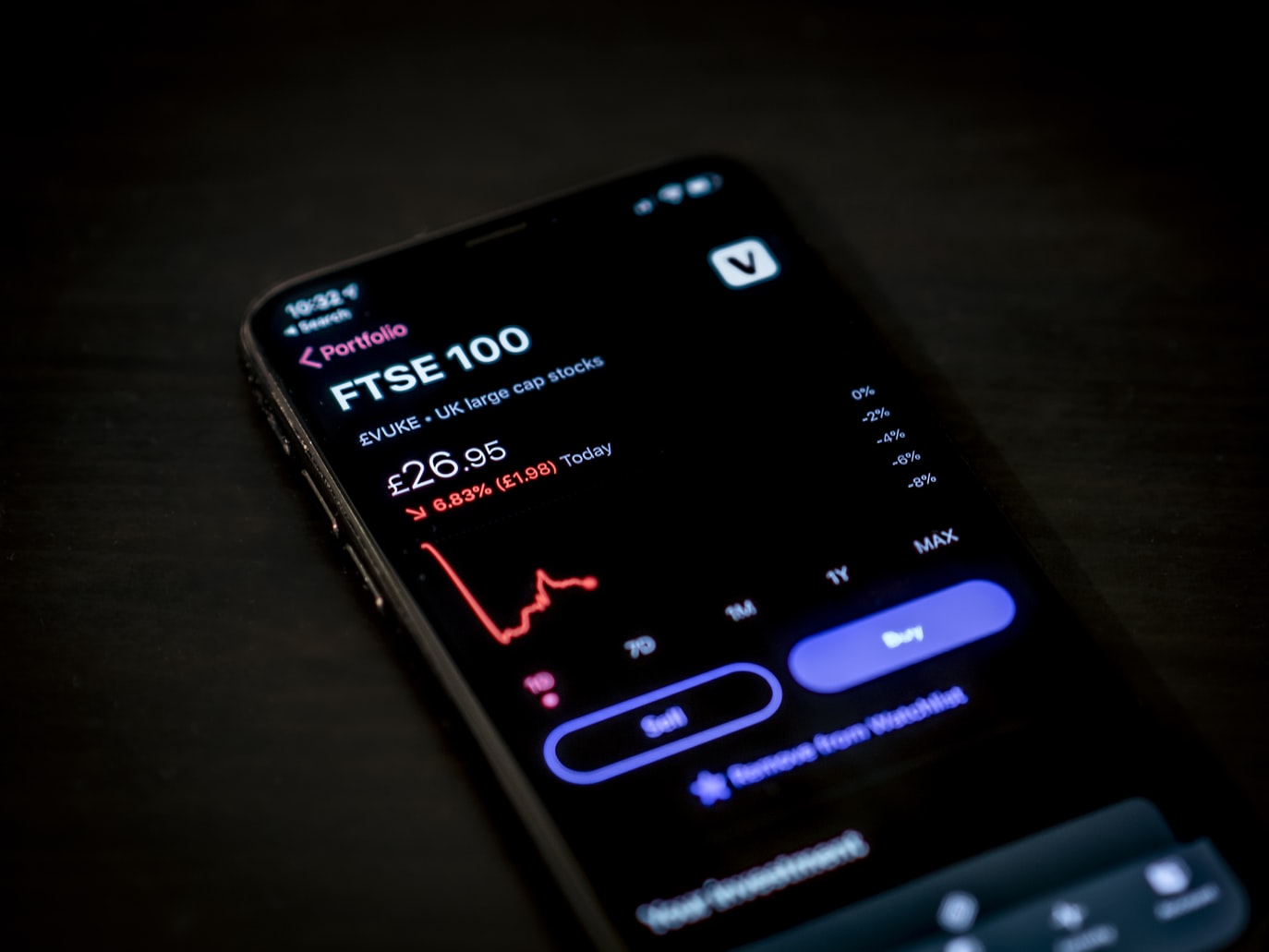Sorting out your personal finances for 2022 - spending, savings, investment and insurance
There are so many options and so much information out there it can be hard to know where to begin! Quashed has taken a look at some of the apps and sites you might find handy as you take control of your finances. Remember the best resolutions, including personal financial goals, are accomplished step by step.

Spending
If you find it difficult to stick to your weekly budget you're not alone - leaving the credit cards at home can be hard, and unfortunately Kiwis are notoriously lax at saving. New Zealand was ranked 26 out of 29 OECD countries for saving money. It’s very easy to spend more than you need to on everyday domestic items, particularly if you’re under stress and don’t have time to plan. Some of the main factors behind overspending are:
Lifestyle creep. In other words, you begin to spend more gradually, and before you know it you’re splurging on things you can’t really afford.
Marketing. People can often be convinced that they need products that are not necessary, or that more purchases will make them happier.
Social media. It can be tempting to try to emulate the lifestyle advertised by the influencers you follow, or to keep up with your online friends, by splashing out on products or holidays.
Lack of knowledge. It’s hard to budget if you haven’t managed to keep track of either what’s coming into your wallet, or where your money is going. If you lead a busy lifestyle it’s easy to fall into the trap of buying small purchases on impulse, without realising how they add up.
The easiest way to find this out is to use Quashed’s Contents Market Scan to compare not just prices, but also the benefits of these policies. Don’t forget that picking a higher excess amount will usually reduce your premiums. This could be between 5-20% of the yearly premium amount but be sure that you have enough in your rainy day fund to cover a higher excess. Another way to save is to pay yearly instead of fortnightly or monthly. This can make a difference of 10% in savings.You can calculate the amount of contents insurance you need via Quashed’s free calculator: just sign up, go to your dashboard and take a look at Explore Insurance > Contents Insurance.
Whether you are saving for your first house, thinking about your retirement, or dreaming about an overseas trip post-Covid, better money management is usually the first step to gradually getting yourself into a good financial position. Good preparation is key to sticking to your budget: you can start in small ways, for instance by putting low-cost meal plans together, browsing second-hand clothes shops, and even by practicing mindfulness when you're stressed, so you're not tempted to splash out impulsively. Making a few adjustments to your lifestyle can make a real difference: for instance you love to exercise and are spending a lot of money on a gym membership, something as simple as taking up cycling, swimming or team sports instead may help you save money. If you find you splash out on the latest fashions and gadgets, take some time to think about what will make you happy in the long run, rather than only thinking in terms of what looks good/trendy today.
If you're looking for tips, here are some of the sites out there may help you and your family live more frugally:
Sorted. Some basic and broad-level financial advice, including a step-by-step guide to building your budget, and where to go if you need help
PAYE.net. An easy-to-use website where you can set up your budget and offset it against your income. All you need to provide is your annual salary/an estimation of your annual income.
Your bank: check out the resources your bank provides in terms of savings ideas. If you’re with Westpac you can access CashNav. BNZ has launched an in-app spend tracker.
And there are also some handy apps available to New Zealand customers looking to get to grips with their spending:
PocketSmith: For people who just need a helping hand. Pocket Smith allows you to see your long-term spending patterns quickly and identify problem areas. The advantage of Pocket Smith is it allows you to record several different income streams, which is very handy if you’re self-employed or freelancing.
Goodbudget: Put your money in digital “envelopes” using this app: one for food, one for clothes, one for rent, vehicle or insurance payments and so on.
SplitWise: If you live in a flatting situation or want to be able to easily split bills with your significant other, SplitWise lets you keep track of how much each person should pay – for instance when it comes to grocery shopping, paying rent or going out to a restaurant.
Browsing for the best local deals can also be worthwhile- whether it's going to a garage sale, keeping an eye on discounts at your supermarket, or joining your local community buy and sell Facebook group.
There are also advice and comparison sites out there such as Consumer NZ, Glimp, and MoneyHub, designed to help you get the best deals on services and products - and plenty of NZ-based and international websites and blogs out there, providing creative tips and tricks on living frugally:
Clever Girl Finance: Learn how to save money in simple ways, such as buying second-hand, sticking to meal plans, repurposing clothes and selling the things you don’t need.
The Simple Dollar: A popular US-based blog about cutting down on unnecessary spending, while still leading a comfortable life and doing the things you care about.
Living Well, Spending Less: Lead a healthy active life while saving money.
Every Dollar Counts: A New Zealand site full of tips designed to help you live within your budget.

Savings
Savings accounts are a way of putting aside money that you don’t need immediately, and accruing interest (in other words, getting a little bit extra each year). Often savings accounts come with rewards in the form of a higher interest if you either manage to save a certain amount every month or leave your money untouched for a specific length of time.
If you’re thinking about opening your first personal savings account – or switching accounts to get a better return on your savings – you’ve probably already browsed the options your bank offers. Remember you don’t have to be tied to one financial service provider: it’s OK to have an everyday account with one bank, and a savings account with another.
There are different types of accounts out there, ranging from basic savings accounts where you can usually transfer money to your other accounts when you need to without much difficulty, to “notice savers” where you have to give the bank notice (usually 25 days’) if you want to take any of your savings out, and “term deposits” – which function like a short-term investment. You usually invest your money in a term deposit for up to two years, at a high interest rate, but during that time you cannot withdraw it.
Don't forget about your KiwiSaver, in which your money is tucked away until you either reach retirement or want to buy a house. If you have a Kiwi Sver account, your payments are automatically deducted from your wages or salary. But if you also make voluntary contributions of more than $1043 each year, the Government will contribute $521. If you find a Kiwi Saver provider offering more attractive terms than your current provider, remember you can also apply to switch.
How do I pick a savings account?
Which account is appropriate for you depends on your personal circumstances: if you suspect you may have to draw on your savings unexpectedly, locking your money in a term deposit or a “notice saver” will probably just create extra stress. But if you know you have more than enough money to get through the month, and you struggle with sticking to your budget, a notice saver could be the perfect solution. Term deposits can be a way of getting into investing, for people who have cash to spare – generally you must invest a minimum of $5000 or $10,000.
Here are some of the savings accounts options from some of New Zealand’s largest banks:
Rates as at 24 January 2022
Westpac: Westpac has Simple Saver (0.10% interest) and Bonus Saver (0.40% interest) options. If you sign up to a Bonus Saver account, you are rewarded when your bank account balance is $20 higher than it was at the end of the previous month. Westpac also has a Notice Saver account which returns 0.65% interest and a Westpac Bonus Saver PIE, which also returns a 0.4% but allows you to pay a lower rate of tax on your investments.
ANZ: ANZ Serious Saver Account (0.45% interest rate, reward if your balance is $20 higher each month), ANZ Online Account (0.15% flat interest rate), ANZ Term Deposits (1.6%, minimum $10,000 invested for 8 months).
BNZ: BNZ Rapid Save Account (0.45% interest rate, one free transaction per month)
ASB: Savings On Call (0.25% interest rate, transferring your money between your accounts is easy and free), Savings Plus (Base interest rate is 0.05%, with a reward rate of 0.65% if you only make one withdrawal during the year, within a specified time period)
Kiwibank: Fast forward Saver (0.3% if you deposit at least $20 a month and don’t make any withdrawals), Back Up Saver (0.1%), Notice Saver (1.5%, 90 days’ notice to make withdrawals, and a minimum investment of $2000), Notice Saver (0.7%, , 32 days’ notice and a minimum investment of $2000), Online Call (0.5%, withdraw money at any time, $2000 minimum investment) and First Saver (0.3%, aimed at people under 19. No transaction fees and no card).
Best option: It’s not for everyone, but the savings option which returns the highest interest rate is Kiwi Bank’s 90-day Notice Saver.
Investments
Investments are a step up from savings – they're a way of putting your money to work. When you invest you put money into something designed to generate a profit, and investments usually carry greater rewards, and greater risk when thing go wrong.
If you’re keen to make your first foray into the investment market in 2022, there’s no need to rush in. There are a huge range of choices available and it’s important to choose the option or combination of options that suits you. Here’s a look at some key investment terms:
Bonds: If you buy bonds, you loan your money to a company - and the company provides you with a fixed return in the form of interest or “coupon”. The return is typically higher than what the average bank offers in the form of their deposit rates. Usually the bigger the company and the better their credit rating, the less your returns from holding their bonds as it is a safer loan. The opposite is also true.
Business: Either creating and managing your own business or becoming part of an existing operation. This investment could be passive, or active. Usually it’s high risk, so before you set up a business of your own its important to do your research and understand the financial risk involved and the likelihood of the business being a success.
Shares: Not to be confused with bonds! When you purchase shares you are essentially purchasing a part of a company. Investors put money into shares hoping that the company will do well and the value of the shares will go up. Depending on which company you choose to invest in, this can be a risky venture.
Property: It�’s common for New Zealanders to invest in property (i.e. buy a house with the intention of selling it at a higher price, and/or renting it out). However, prices have sky rocketed in recent years all across the country with average Auckland home prices over $1M. Prices are now increasingly out of reach – especially for first home owners. For those that have invested in property, the increase in value of the home will have resulted in capital gains.
Peer to peer investments: Via an app such as Harmoney, you can lend money to borrowers who have to pay interest. Borrowers are vetted and rated based on their ability to pay back the loan. The riskier the borrower, the higher the interest rate. Finance companies also provide this service.
Managed funds: You buy units in a fund, comprised of underlying investments. For instance if you buy shares in a fund which has an equal amount of shares in 10 different companies, you’ll also get an equal share of each company. Managed funds also charge their investors annual fees for managing the fund. In return you are able to diversify and invest into more companies even with a small amount of money.
Other investments: there are a myriad of other investments out there, from cryptocurrency like Bitcoin to futures trading, and investing in gold and precious metals. These are less common investment options for New Zealanders and it’s a good idea to be very sure of what you’re getting into before you begin to put money into them.

Getting started
You can start investing with as little as a few hundred dollars. Depending on what you want to achieve and how much you want to invest, setting up an appointment with your bank or with an independent financial adviser may be a great idea: you can also do some research online to help you understand your investment profile. There are online platforms and apps such as ASB Securities , Kernel Wealth, Simplicity, Hatch and Sharesies that let you purchase shares and manage your investments directly.
Hatch: Hatch is owned by FNZ, a NZ-based Fintech company. Hatch allows you to design your own share portfolio, buying shares in individual companies and Exchange-Traded Funds in the US. More than 130,000 Kiwis are using Hatch.
Sharesies: Sharesies started as a platform for investing in companies listed on the NZX (New Zealand's main stockmarket index), but it now also offers AU and US shares. Sharesies has proved popular and has more than 400,000 customers. It has made investing popular and easy for New Zealanders.
ASB Securities: Buy shares from the local stock market and or Australia online including exchange traded funds. ASB offers margin lending, whereby you can borrow against a range of approved securities.
Simplicity: Fund manager and KiwiSaver provider Simplicity offers a range of funds investors can choose from, including a conservative, balanced and a growth fund. They are known to be a non-profit with low fees; keeping things simple for investors.
Kernel: Index fund manager Kernel allows customers to set up a regular deposit and auto-invest. This platform has three global funds: Kernel S & P Global 100, Kernel S&P Global Dividend Aristocrats, and Kernel Global Infrastructure. It also has three NZ-focused index funds. Investing under $1,000 a month and pay no fees. Anything above, your fee is $3 a month.
Insurance
If getting your insurance sorted is among your resolutions for 2022, Quashed is a great place to start!
It’s the first of its kind platform in New Zealand (and likely the world!) where all your different insurance policies can come together in one place. You can setup your very own insurance dashboard in just a few minutes – seeing all your policies, total spending, cover types and amounts including your workplace insurance schemes and credit card insurance benefits.
The platform also offer information and articles on all forms of insurance, and allows you to compare across different providers for Home, Contents and Car insurance options using our Market Scan tool. It’s the fastest and easiest way to compare insurance. Often customers find hundreds or even thousand in savings and policies with insurance benefits that are better.
Take a look at our Guide to General Insurance to get started!
While some forms of insurance, for instance pet insurance or car insurance, can be relatively easy to sort out, it’s a great idea to get some impartial financial advice when it comes to more complex forms of insurance such as life and health cover, insurance relating to income protection, or even your home and contents insurance. Quashed can seamlessly connect you with an insurance adviser who is experienced – for a free, no-strings-attached, 30-minute chat.
Once you have your insurance policies sorted, remember to upload them to the Quashed platform – you will be able to view your policy easily and compare your current deal to others out there, and save money. If you're interested in insurance on a tight budget, take a look at our guide on insurance when you're self employed or contracting, and insurance on a shoestring for inspiration.
Get started with Quashed today - it's easy to use, and absolutely free!
